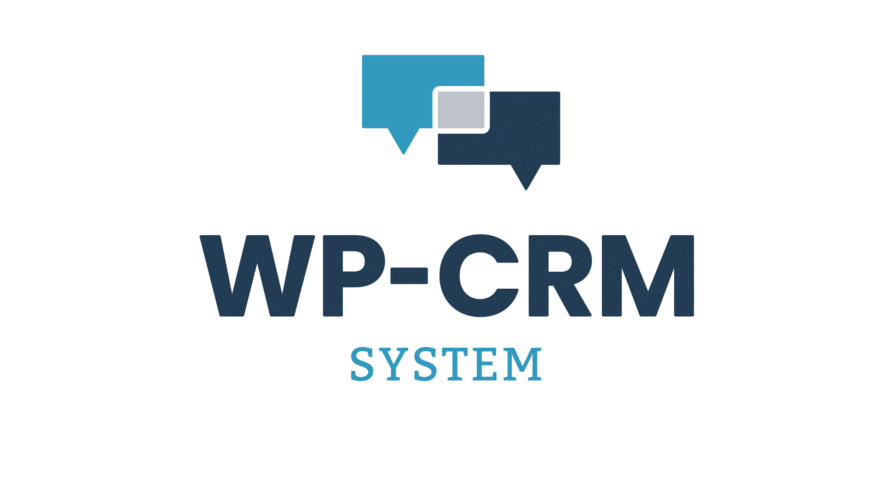Mario Peshev, the CEO of WordPress agency DevriX, officially announced he had acquired the WP-CRM System plugin this week. Formally, his company Premium WP Support is taking the reins for the project. Scott DeLuzio, the creator and previous owner of the plugin, published the news on his blog last month.
DeLuzio originally built the plugin in 2015 after dissatisfaction with the solutions available on the market and having no control over the data, which was hosted on third-party services. He made the plugin available through his brand Amplify Plugins. Since then, his company has shifted focus to add-ons for eCommerce plugins in the WordPress space. Therefore, he decided to sell his CRM project.
Peshev began his career as an engineer with enterprise-grade development. He said he was already familiar with CRMs after having worked with them long before he switched to WordPress development. It shaped the focus of DevriX toward small and medium-sized enterprises (SME) and growing businesses using WordPress as an application framework.
“Over the past few years, we’ve built a number of integral solutions in-house for our brands — including our business process management system or our time tracking software,” he said. “When I stumbled upon a tweet by Scott DeLuzio disclosing the sale of a couple of plugins, I got hooked almost immediately.”
Peshev described WP-CRM System as being closely aligned with his company’s goal, which is to support WordPress-driven businesses given clear metrics for maximum ROI.
“It’s powerful, integrates seamlessly with most form plugins (intercepting leads through Contact Form 7 or Gravity Forms), comes with Slack callbacks when leads come in, provides multiple views for different use cases, and gets the job done through a single, yet powerful dashboard,” he said. “Working with an existing customer base is also a great opportunity to refine the rest of our product offerings and work closely with businesses eager to evolve without having to migrate away from WordPress.”
For the short term, Peshev said his quality assurance team is doing extensive testing for performance opportunities. It is also testing to see how the plugin can integrate with other popular business plugins. However, the main goal is to push out some usability improvements.
“In the long term, we will be expanding into several verticals — adding industry-specific features that better serve groups of businesses, such as accounting firms, creative studios, and event management companies,” he said. “The product is customer-led and we rely a lot on existing customers to improve usability even further.”
The CRM market is becoming more competitive. Peshev said the contract on this acquisition was already signed by the time Automattic publicly announced its acquisition of Zero BS CRM (now Jetpack CRM) last year. However, he feels like there is plenty of room for growth for both plugins in the space.
“Larger businesses have to scale with certain constraints in mind — both from a managerial standpoint, and when it comes to responsibility,” he said. “This is how startups emerge and quickly acquire certain industries or niche markets. Automattic is known to spread across other business segments, such as the hosting or eCommerce ecosystems. I certainly don’t believe it sets the right tone, but I’m also not concerned about yet another CRM solution entering the space. In this case, it’s a mutual effort toward strengthening the position of WordPress in the SME space, bringing more opportunities to matured businesses, and preventing businesses from ‘outgrowing’ WordPress as a business platform.”
The major player in the CRM market is HubSpot, but it pushes users to an app that is hosted off-site, which is the opposite approach of both WP-CRM System and Jetpack CRM.
Peshev said his company used to be a HubSpot agency partner between 2017 and 2019. However, they terminated the partnership because HubSpot’s focus was on building an opinionated business ecosystem that was cluttered and incompatible with other solutions. The goal seemed to be to push users toward other CMS-type software that they owned.
“WP-CRM System feels native to the WordPress user,” said Peshev. “With simpler sales cycles, it doesn’t feel overwhelming. You don’t need to spend forever sifting through options and filling out complex forms. WP-CRM System is designed for growing businesses that used to rely on group chats, emails, and spreadsheets, and can’t justify the administrative overhead (or pricing) of the giants in the CRM space. The market is indeed saturated, especially outside of WordPress, and segmentation is the best strategy here: evolving a CRM for a specific segment (WordPress users) and audiences (mostly service businesses) in our case, and developing separate extensions for verticals that reach out more frequently.”





